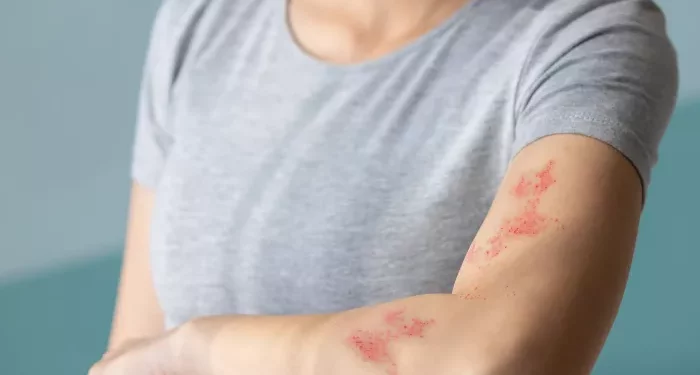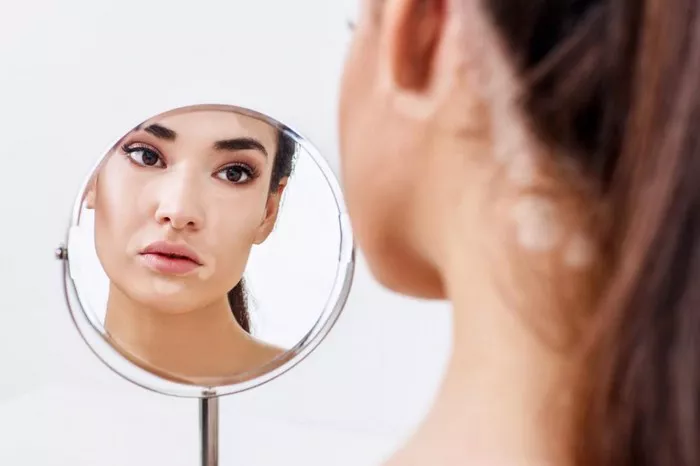Chickenpox and shingles are both caused by the same virus, the varicella-zoster virus (VZV). After you have chickenpox, the virus does not completely leave your body. Instead, it remains dormant in the nervous system and can reactivate later in life, causing shingles. This article will explain how long after chickenpox you can get shingles, what factors affect the reactivation of the virus, and what you can do to reduce the risk.
What is Chickenpox?
Chickenpox is a highly contagious viral infection that most commonly affects children. It begins with red, itchy spots that develop into blisters and then crust over. The virus spreads through the air and by direct contact with the fluid from the blisters.
Once you recover from chickenpox, you may think that the virus is completely gone. However, what happens in the body after chickenpox is more complicated. The varicella-zoster virus does not leave your body completely; instead, it moves into your nerve tissues where it becomes dormant, waiting to potentially reactivate years later.
What is Shingles?
Shingles, also known as herpes zoster, is a painful rash that appears on one side of the body. It occurs when the varicella-zoster virus reactivates after being dormant for many years. When the virus reawakens, it travels along the nerve fibers to the skin, causing a painful rash. The rash typically appears as clusters of fluid-filled blisters that eventually scab over.
Although shingles can happen at any age, it is most common in adults over the age of 50. The pain associated with shingles can last for weeks or even months, and in some cases, it can lead to complications like postherpetic neuralgia, which causes long-lasting nerve pain.
How Long After Chickenpox Can You Get Shingles?
Shingles can occur anytime after you have had chickenpox, but it typically appears later in life. The varicella-zoster virus can remain dormant for decades before it reactivates. On average, shingles usually occurs between the ages of 50 and 60, but it can appear at any age, even in people who had chickenpox as children.
It is important to note that having chickenpox once does not guarantee you will get shingles. Many people who have had chickenpox will never develop shingles in their lifetime. However, the longer you live after having chickenpox, the more likely it is that the virus will reactivate and cause shingles.
In general, shingles can appear at least 10 to 20 years after you have had chickenpox, but it can take much longer. The risk of developing shingles increases with age, especially after the age of 50. In fact, nearly half of all people over the age of 85 will experience shingles at some point in their lifetime.
Why Does the Varicella-Zoster Virus Reactivate?
After a person has chickenpox, the virus retreats into the nerve tissue near the spinal cord and brain. The immune system normally keeps the virus under control, preventing it from reactivating. However, certain factors can weaken the immune system, allowing the virus to become active again. These factors include:
Age: The immune system weakens as we age, making it easier for the virus to reactivate.
Stress: Physical or emotional stress can lower the body’s immune response, increasing the chances of the virus reactivating.
Infections or illnesses: Conditions that compromise the immune system, such as HIV or cancer, or treatments like chemotherapy, can increase the risk of developing shingles.
Medications: Drugs that suppress the immune system, such as steroids or immunosuppressive medications, can trigger shingles.
Other factors: Trauma to the skin or a weakened immune system due to other conditions like diabetes can also increase the risk.
Symptoms of Shingles
The symptoms of shingles typically begin with pain, itching, or a tingling sensation in a specific area on one side of the body. After a few days, a red rash appears, usually in a stripe or band-like pattern. The rash then turns into blisters that are filled with fluid. These blisters eventually crust over and heal in about 2 to 4 weeks.
Some of the common symptoms of shingles include:
- Pain, burning, or tingling sensation
- Red rash
- Fluid-filled blisters
- Itching or sensitivity to touch
- Fever and chills
- Headache
- Fatigue
In some cases, shingles can cause long-term pain in the affected area, a condition known as postherpetic neuralgia (PHN). This condition occurs when the nerves remain damaged after the rash has healed, causing persistent pain that can last for months or even years.
Can You Get Shingles More Than Once?
It is possible to get shingles more than once, although this is relatively rare. Most people who have shingles will not experience it again, but there is a small chance that the varicella-zoster virus can reactivate in a different area of the body. The risk of having a second episode of shingles is higher in individuals with weakened immune systems.
How to Prevent Shingles
While you cannot completely prevent the varicella-zoster virus from remaining dormant in your body, there are steps you can take to reduce the risk of shingles or its severity:
Get vaccinated: The shingles vaccine, called Shingrix, is recommended for adults over the age of 50. It is highly effective at reducing the risk of developing shingles and the complications associated with it. The vaccine is typically given in two doses, with the second dose administered 2 to 6 months after the first.
Manage stress: Chronic stress can weaken the immune system and increase the risk of shingles. Finding ways to manage stress, such as through exercise, meditation, or relaxation techniques, can help maintain a strong immune response.
Healthy lifestyle: Eating a balanced diet, getting regular exercise, and getting enough sleep can help keep your immune system strong and reduce the risk of shingles.
Consult your doctor: If you have a weakened immune system due to a medical condition or medication, discuss your risk of shingles with your healthcare provider. They may recommend vaccination or other preventive measures.
Treatment for Shingles
If you develop shingles, early treatment is important to reduce the severity of the symptoms and prevent complications. Antiviral medications, such as acyclovir, valacyclovir, or famciclovir, can help reduce the duration and intensity of the outbreak if started within 72 hours of the rash appearing. Pain relief medications, including over-the-counter options like acetaminophen or ibuprofen, or stronger prescription painkillers, may also be used to manage pain.
In some cases, if the pain persists after the rash has healed, your doctor may recommend treatments for postherpetic neuralgia, such as anticonvulsants, antidepressants, or topical treatments like lidocaine patches.
Conclusion
Shingles is a painful condition caused by the reactivation of the varicella-zoster virus, which remains dormant in the body after a person has had chickenpox. The virus can reactivate decades later, typically in people over the age of 50, but it can occur at any age. While shingles cannot be entirely prevented, getting vaccinated, managing stress, and leading a healthy lifestyle can help reduce the risk of developing shingles.
If you are over 50 or have a weakened immune system, it is important to talk to your doctor about the shingles vaccine and other preventive measures. If you develop shingles, early treatment can help reduce the severity of the disease and prevent long-term complications.
Related topics:


























